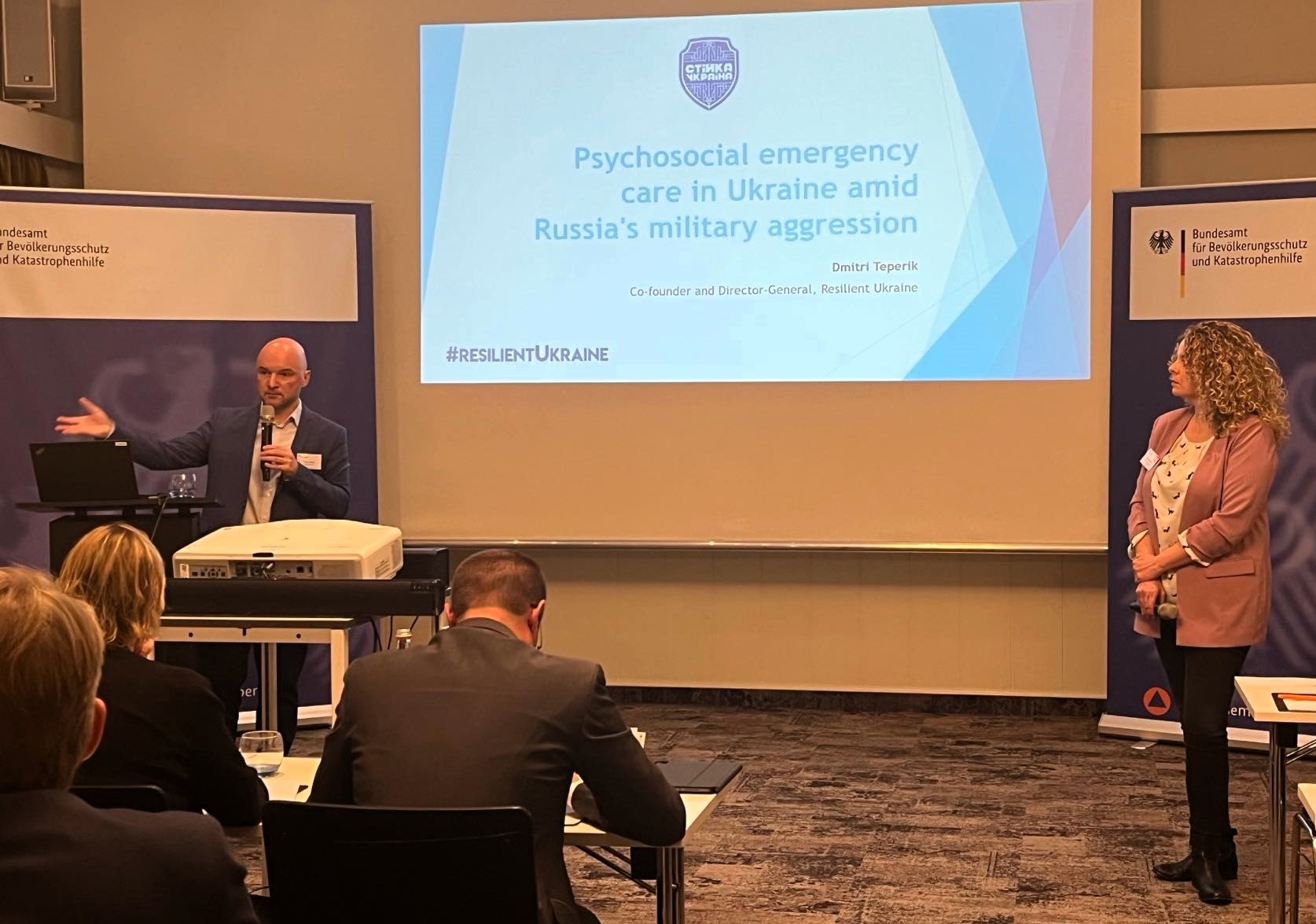
Dmytro Teperik, Director-General of Resilient Ukraine, spoke at the annual conference of the German Federal Office of Civil Protection and Disaster Assistance.
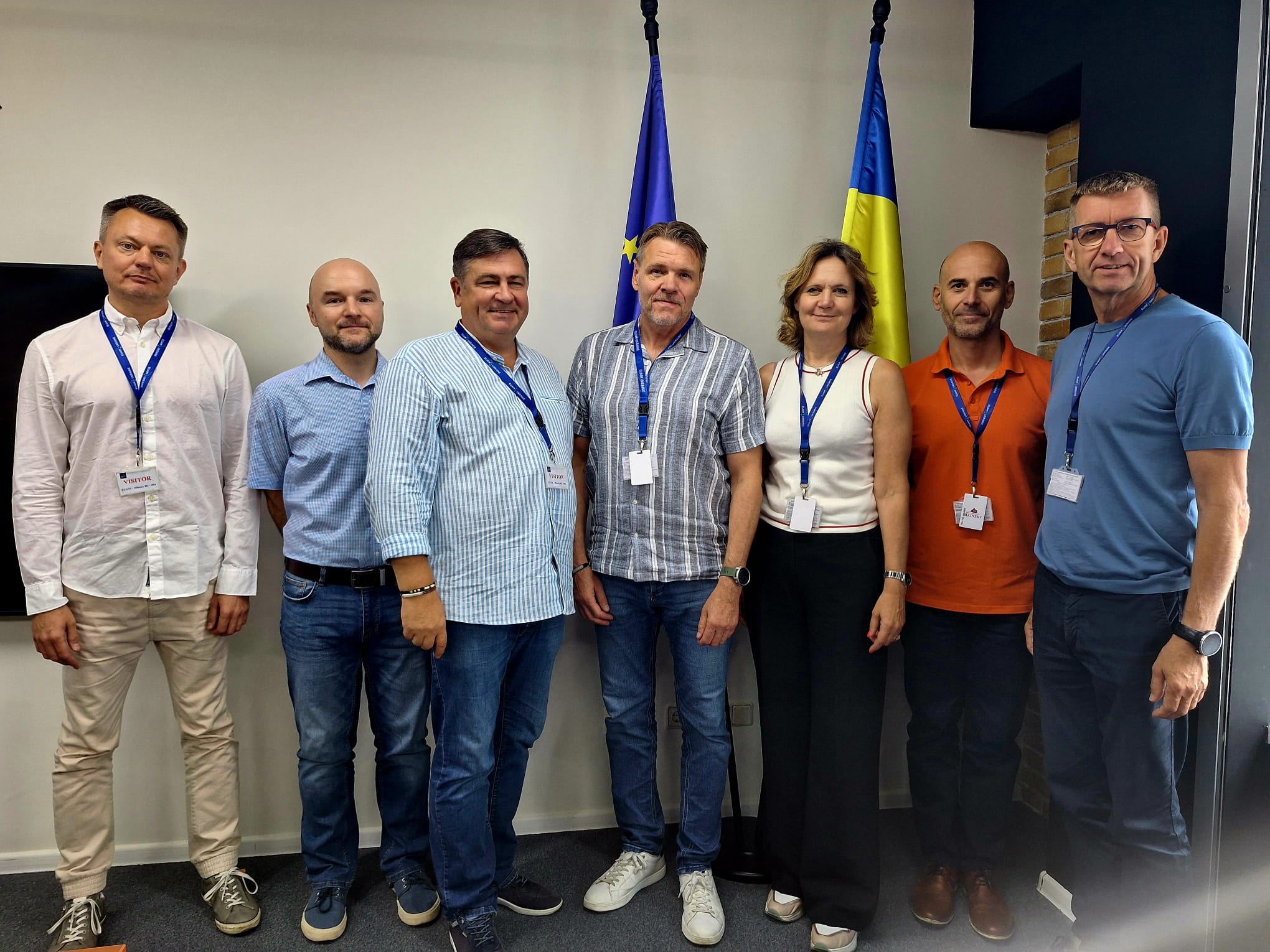
On 30 August in Kyiv, the Resilient Ukraine leadership and Mati Raidma, a member of the International Expert Board, held a working meeting with representatives of the European Advisory Mission to Ukraine (EUAM Ukraine).
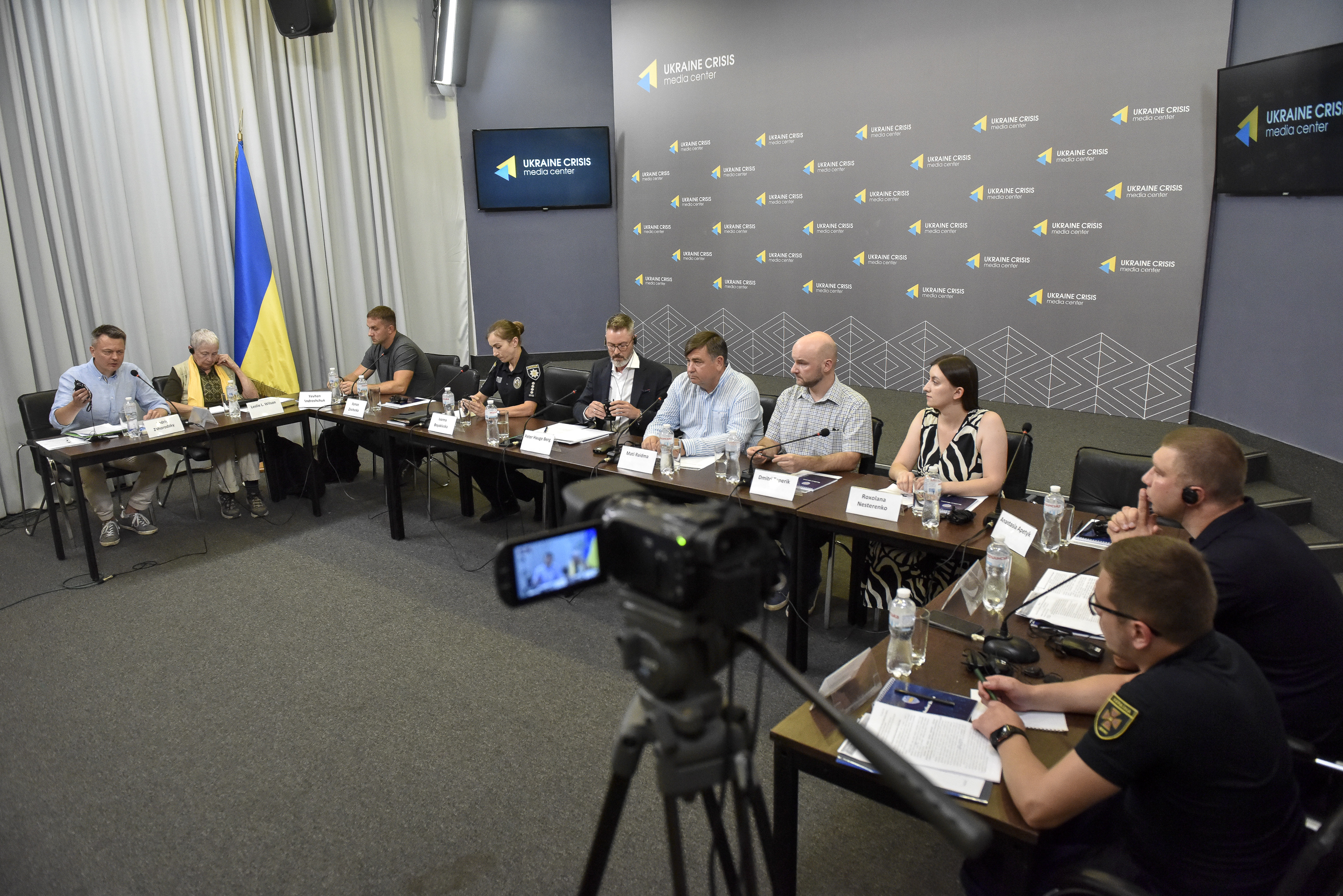
Resilient Ukraine is holding a series of public discussions with the objective of raising awareness about resilience, its characteristics and components.
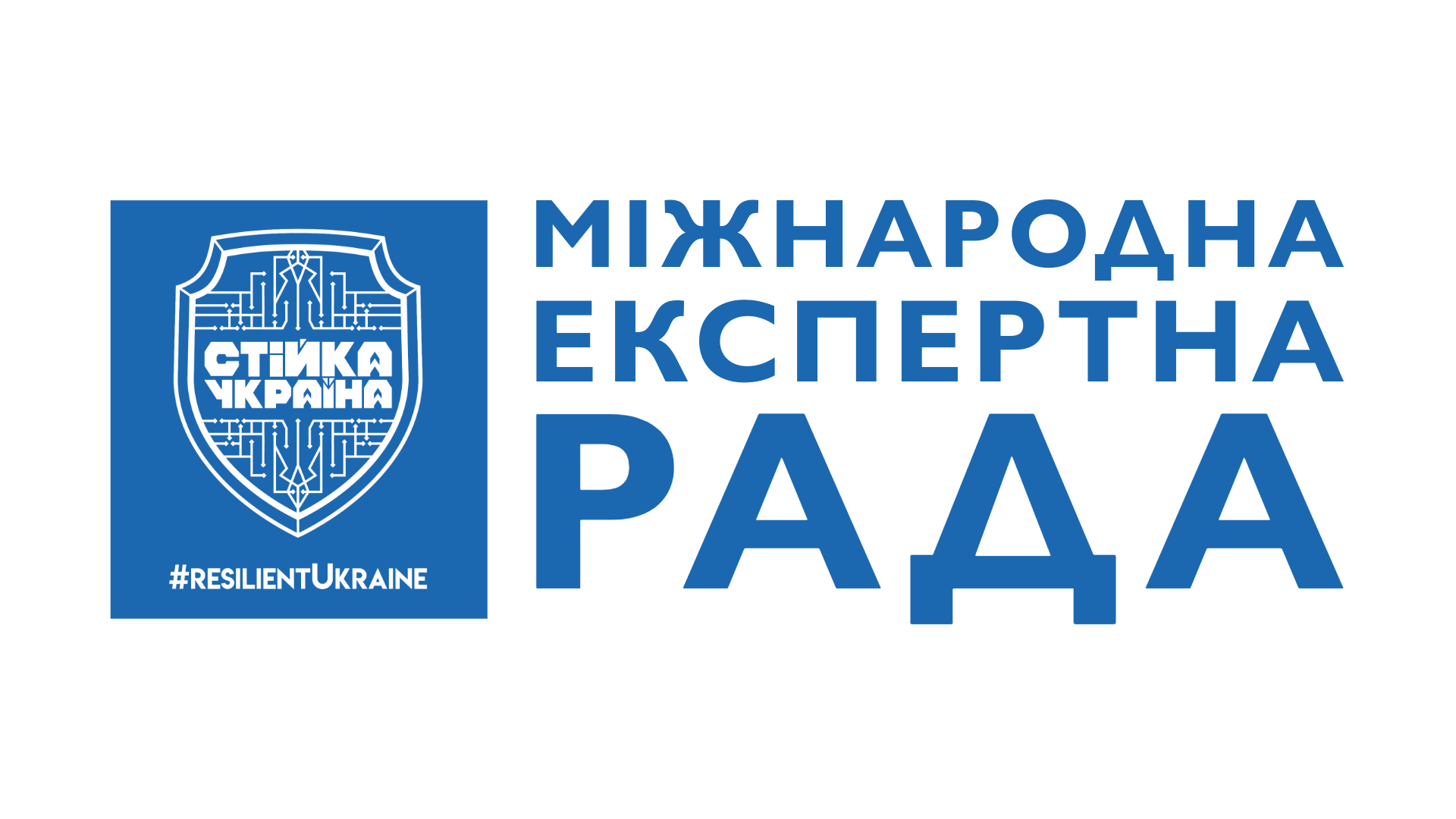
To enhance the impact of best practice sharing, Resilient Ukraine has established the International Expert Board, an initiative to strengthen collaboration and bring together leading professionals from diverse security, resilience and crisis management backgrounds.
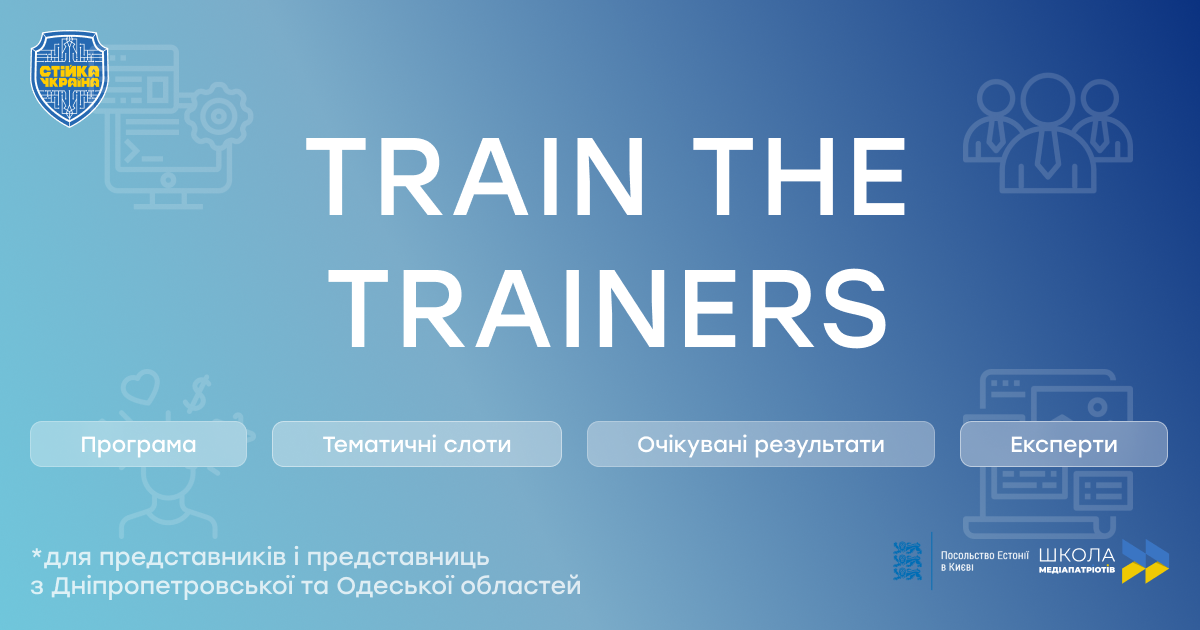
The programme "Train the Trainers" is based on a synergistic combination of the updated methodology of cross-sectoral crisis simulation exercises and an adapted approach to interpreting the main principles of Ukraine’s societal resilience in the context of Russia's military aggression against Ukraine.
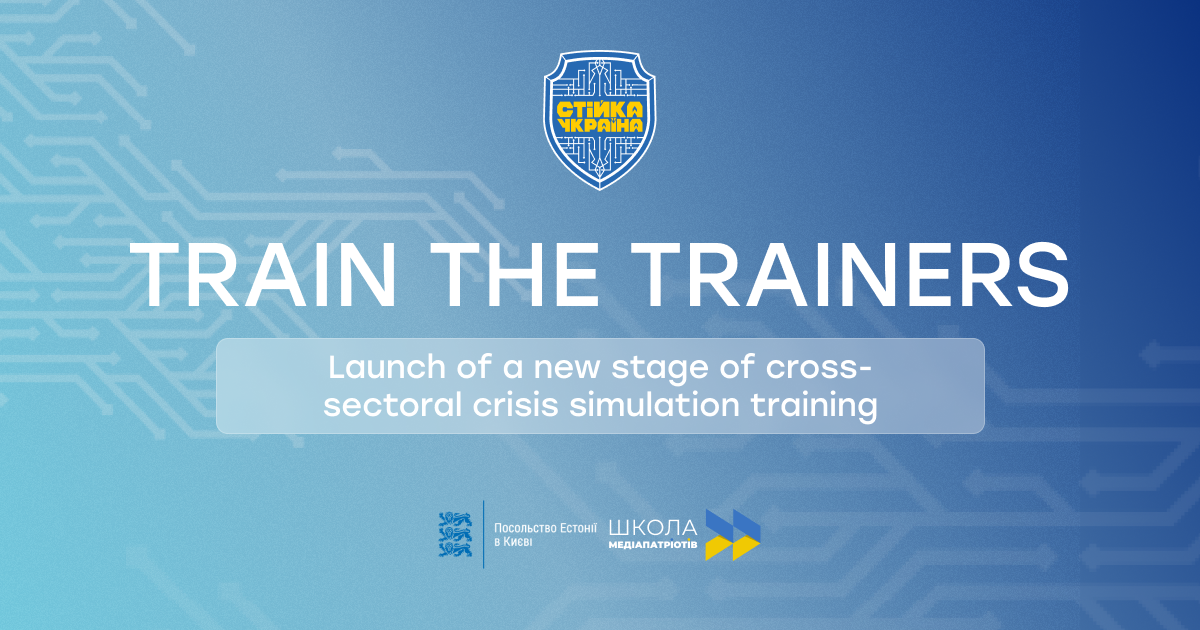
As our experience of conducting several cross-sectoral simulation exercises in Ukraine’s regions during 2022-2023 was successful, it has also shown that many citizens of Ukraine are optimistic about the future, see opportunities for self-realization in their country, and, most importantly, are ready to join projects aimed at learning and sharing practical experiences on resilience building.
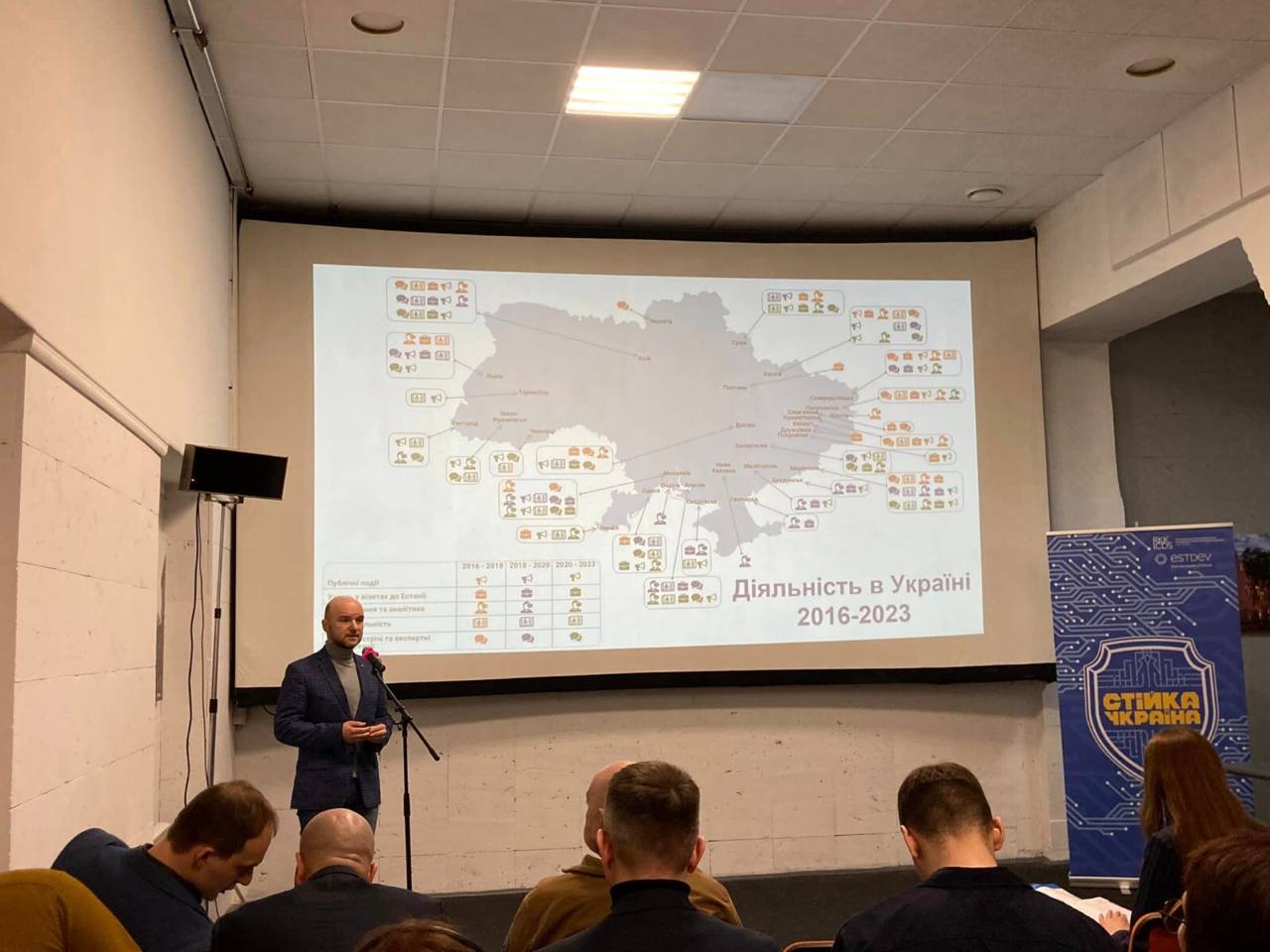
The Resilient Ukraine team presented “Cross-sector cooperation: lessons for a resilient society,” an analytical report based on the results of cross-sector crisis-simulation exercises in Kyiv on 28 March 2023.
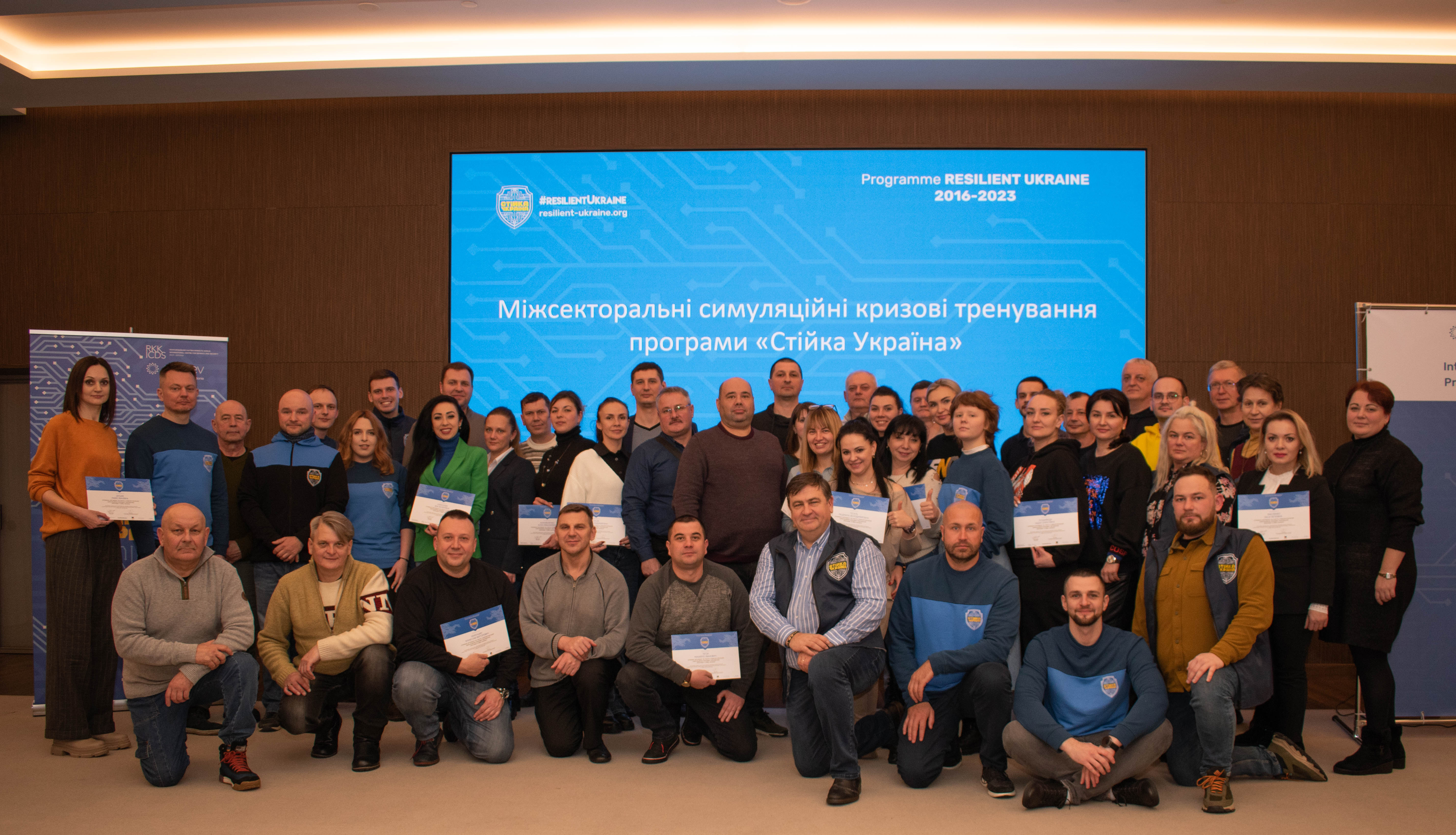
The Estonian-Ukrainian development co-operation programme "Resilient Ukraine" conducted the eighth cross-sectoral crisis simulation exercises on January 30-31, 2023.
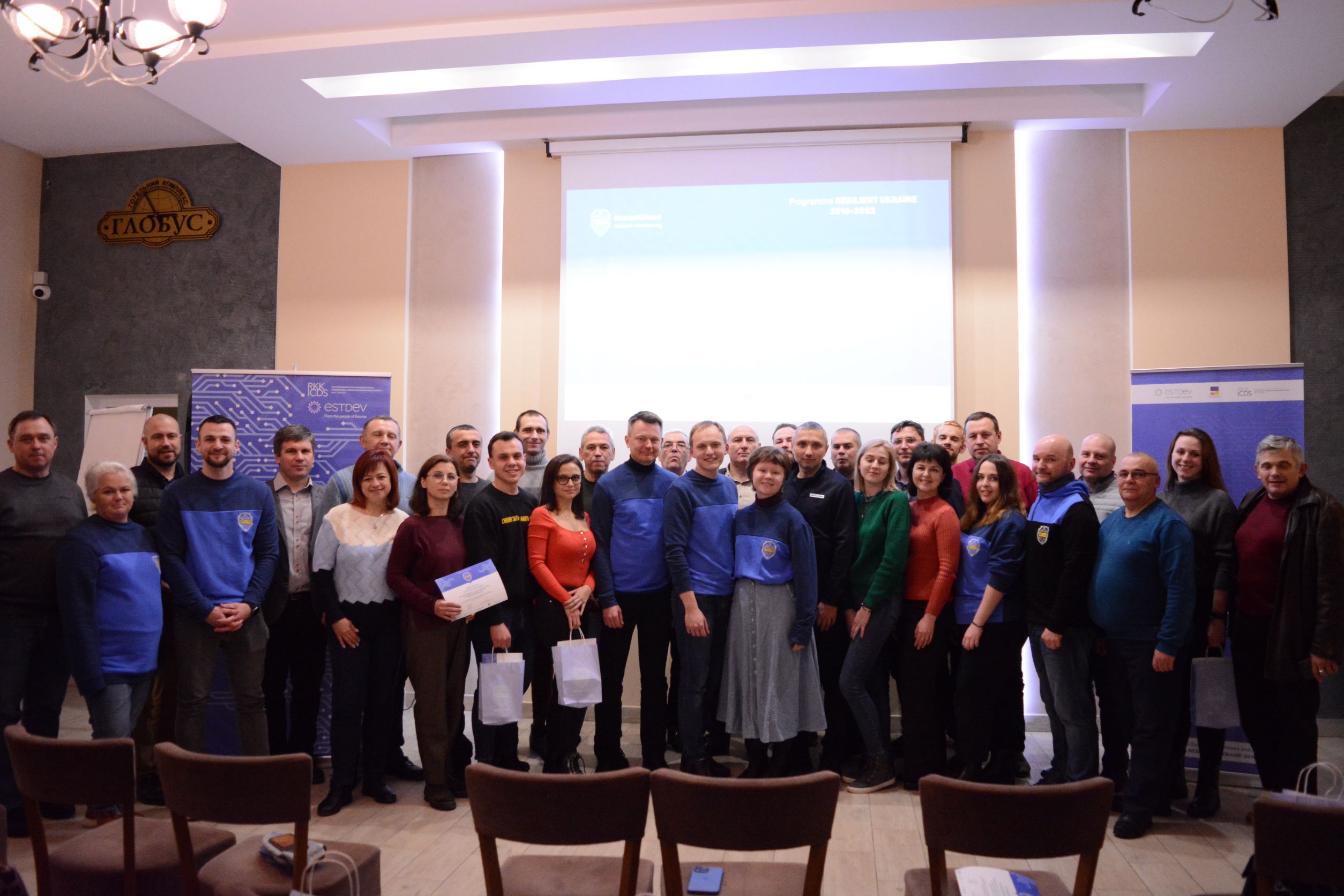
From 28 to 29 November, 2022, the “Resilient Ukraine” programme held cross-sectoral crisis simulation exercises in Ternopil.